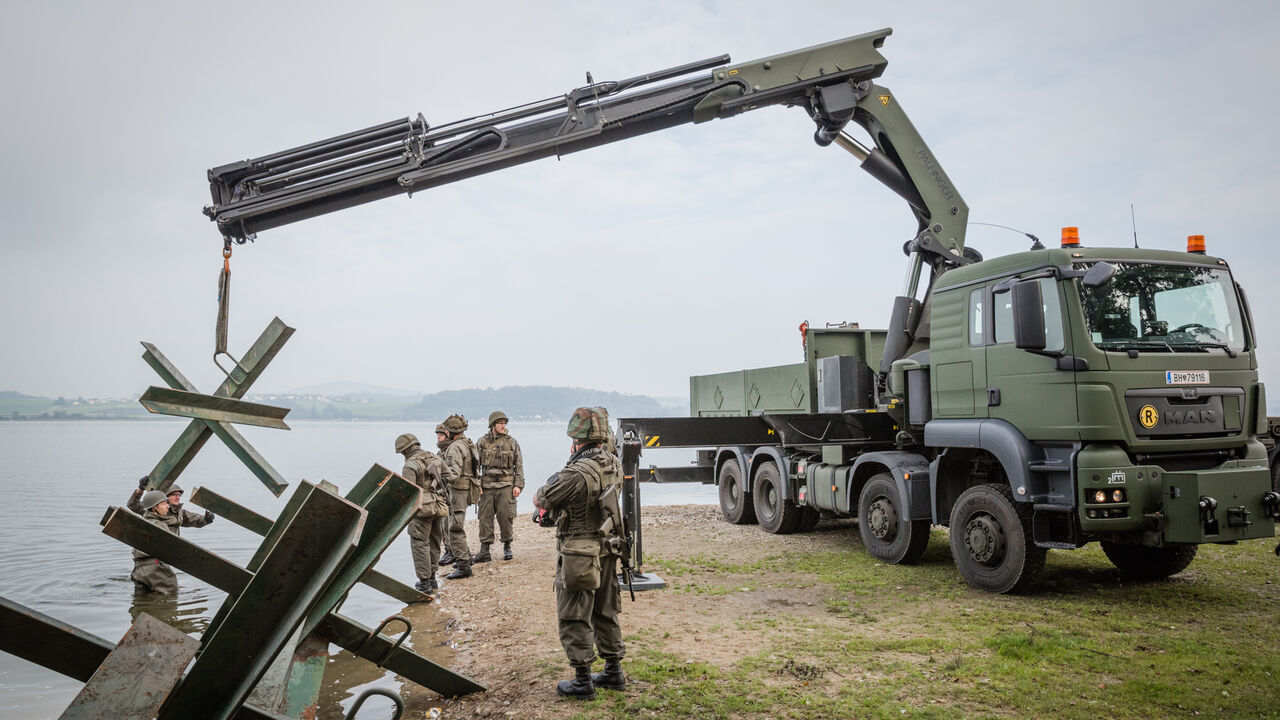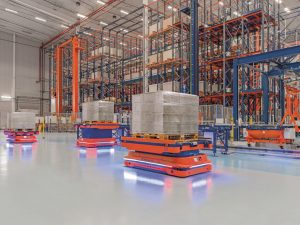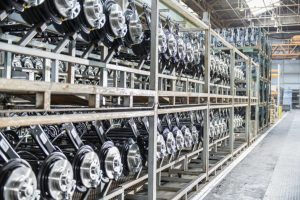Rheinmetall in the Arms Boom: New Perspectives for the Industry

The global political landscape is shifting — and Rheinmetall is at the center of a new arms boom. With contracts worth hundreds of billions, new munitions factories, and a potential takeover of the VW plant in Osnabrück, the Düsseldorf-based company is transforming into a key global player. This is how Rheinmetall is responding to the “era of rearmament” — and why the defense industry is currently growing at breakneck speed.
Security Policy Shift in Europe Sparks Industry Surge
The security situation in Europe has fundamentally changed since Russia’s war of aggression against Ukraine — with massive consequences for the defense industry. One of the biggest beneficiaries of this geopolitical shift is the Düsseldorf-based arms manufacturer Rheinmetall. With projected order potential of up to €300 billion by 2030, the company is experiencing an unprecedented growth phase.
“We see order potential of up to €300 billion by 2030,” said CEO Armin Papperger in an interview with Handelsblatt. The company is responding to rising demand with a broad set of measures: production expansions, strategic relocations, potential plant takeovers, and an aggressive expansion strategy at home and abroad are setting Rheinmetall’s new course.
Historic Growth: Record Revenues and Earnings Increases
Already in 2024, Rheinmetall posted impressive figures. Group revenue rose by 36% to around €9.8 billion, while operating profit (EBIT) climbed by 61% to €1.478 billion. The defense segment was particularly profitable, with an operating margin of 19%.
According to Papperger, this is just the beginning. The company is prepared to massively expand its capacities to handle both existing and newly tendered large contracts — including from Germany, other NATO countries, and the European Union.
“Era of Rearmament”: Political Tailwinds for the Defense Sector
Papperger openly speaks of a new “era of rearmament.” After the start of the war in Ukraine, German Chancellor Olaf Scholz announced the so-called “Bundeswehr Special Fund” totaling €100 billion — an unprecedented sum aimed at modernizing Germany’s armed forces.
As a result, Rheinmetall has seen a sharp increase in orders for tanks, ammunition, air defense systems, and military vehicles. Other EU countries have also increased their defense budgets, bringing Rheinmetall additional orders worth billions.
Factories in Transition: Shifting from Civilian to Military Production
Rheinmetall operates several plants that have traditionally specialized in producing components for the automotive industry. But the signs point to transformation. The company has announced plans to convert two of its plants in Berlin and Neuss to arms production. In the future, these facilities will manufacture protection components, mechanical parts for military vehicles, and related equipment.
This shift is not only a response to rising demand but also a strategic move to reduce reliance on the weakening automotive supplier sector.
Rheinmetall is investing heavily in AI-based sensors, automated reconnaissance systems, and networked battlefield command. These technologies are expected to play a larger role in future defense systems to meet the demands of modern warfare.
At the same time, the company is advancing its development of unmanned vehicles (drones and ground platforms), which could play a central role in reconnaissance and logistics in the future.
Takeover Plans: VW Plant in Osnabrück in Focus
One particularly hot topic is Rheinmetall’s possible takeover of the Volkswagen plant in Osnabrück. Traditionally used for final assembly of niche models like the T-Roc Cabriolet, the plant is now under review due to underutilization.
“Yes, I’m in talks with VW board members,” Papperger told Handelsblatt. “But I don’t expect us to reach an agreement anytime soon.” He hinted that the plant would be “well suited” for producing armored vehicles. A potential acquisition could not only boost Rheinmetall’s production capacity but also help preserve jobs in Osnabrück — though only under economically viable conditions.
New Production Sites: Expanding Capacity
Beyond restructuring and potential acquisitions, Rheinmetall is planning new production facilities. A key project is the construction of a new munitions factory in Lower Saxony, where up to 200,000 artillery shells are to be produced annually. These shells are intended not only for the Bundeswehr but also for export to allied countries — including Ukraine.
At Unterlüß, the company’s largest production site, investments in the tens of millions are underway. There, tracked vehicles such as the Lynx infantry fighting vehicle are to be mass-produced.
International Expansion: New Markets and Acquisitions
Rheinmetall is thinking beyond national borders. In early 2024, it completed the acquisition of Spanish munitions manufacturer Expal Systems — a strategic move to secure know-how and production capacity in Southern Europe.
Additional investments are flowing into Hungary, Australia, and the United Kingdom. In Hungary, for example, a modern facility for the KF41 Lynx infantry fighting vehicle is currently under construction. It will serve both local demand and export markets. Rheinmetall’s goal is to achieve annual revenue of €40 billion by 2030.
Criticism and Controversy: Militarization Concerns
Despite its economic success, the company’s rapid expansion is not without criticism. Peace initiatives and parts of the political opposition warn of the militarization of the economy. The question of the defense industry’s social responsibility continues to spark debate — especially in connection with exports to crisis regions.
Rheinmetall defends its position by citing democratically legitimized defense needs and international security cooperation within NATO and the EU.






